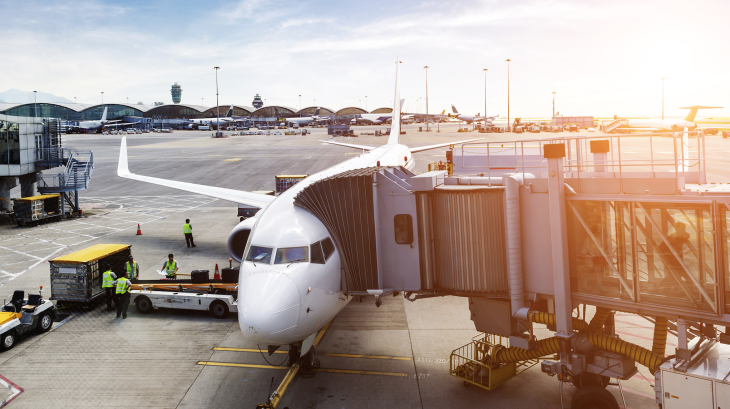With JetBlue’s recent announcement to raise their checked baggage fee $5 to a new rate of $30, the move is viewed by most travelers as another way to make profit off customers who use ancillary services. The airlines are increasing looking for ways to increase revenue as cost like fuel and labor rise which begs the question, what is the best way for airlines to correlate revenue to expense.

When you send a package with a shipping carrier like UPS or FedEx, the price is partially determined by the weight. This is reasonable as it directly affects the cost to ship an item. When a passenger books a seat, the airline understands the volume based on the seat dimension, but weight can vary substantially and directly impact aircraft fuel cost.
Today’s highly efficient revenue management divisions and the substantial range of ticket prices could make it difficult to determine how much of each ticket’s revenue is tied directly to weight. Some may argue that airlines charging passengers based on weight is discrimination and should not be allowed. This however can be countered by an equality argument from passengers who want lower ticket prices because they incur less cost for the airline.
The baggage fee charged by airlines generally allows for a bag up to a certain dimension and weight to be allowed before additional charges are incurred. Should airlines explore a base total weight for tickets that includes the passenger and all luggage with handling fees for checked items?
In recent years, there has been a few instances of passenger weight being measured, but no major airline has ever adopted a formal policy. Finnair starting a voluntary weigh-in of passengers in 2017 to update its standard weight data, but never required anyone to be weighted. Samoa Air passengers do not pay for a seat but pay a fixed price per kilogram that varies depending on the route. If any large airlines adopt such a policy, it would likely start with low cost carriers who try to unbundle every expense associated with flying.

If we all bought tickets at the airport, weight could be measured accurately, but tickets are bought in advance, and weight is subject to fluctuation, not to mention things like variances in clothing depending on where you’re going, and I doubt most people know how much their carry-on weighs.
In the late 80s I used to fly Continental Express from Newark to New Haven. A twin turbo prop with about 6 seats and no separation between the cockpit and passengers.
We wee weighed and our carry on was weighed. Then we were assigned seats based upon the Pilot’s balancing of the aircraft.
I am in my mid 50s and I am fit so maybe I can get a discount. I weigh 1/3 of some of my fellow passengers. I am all for weighing passengers —– in public!
Miles – you’re right but they could weigh them right in line in the airport and charge those over a certain limit an extra fuel fee there and then to pay for the extra fuel needed to hoist their carcasses into the air.